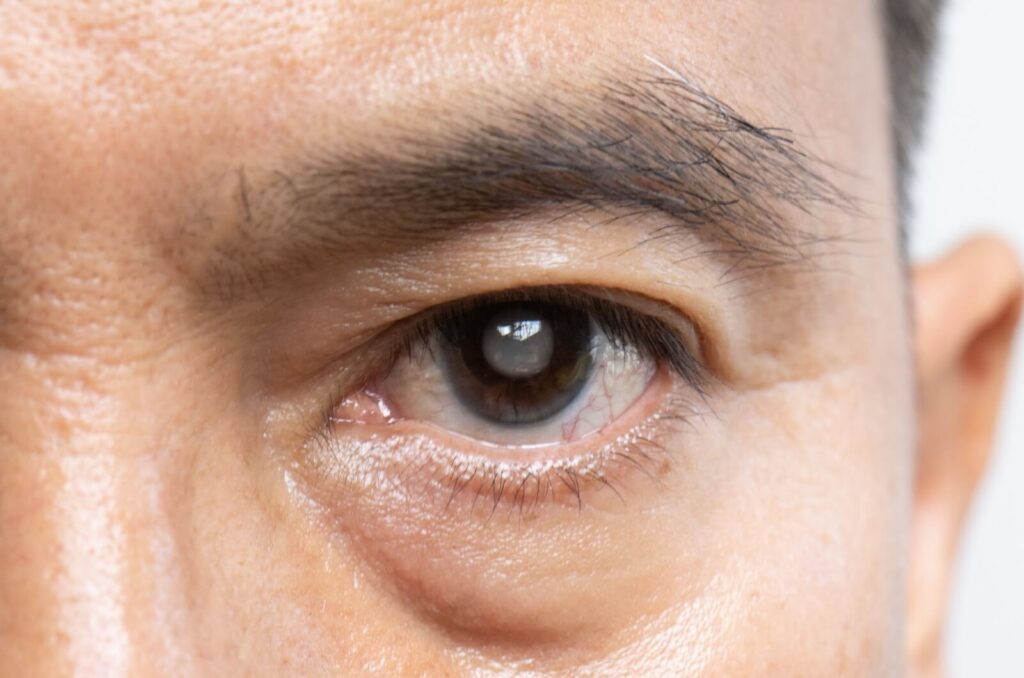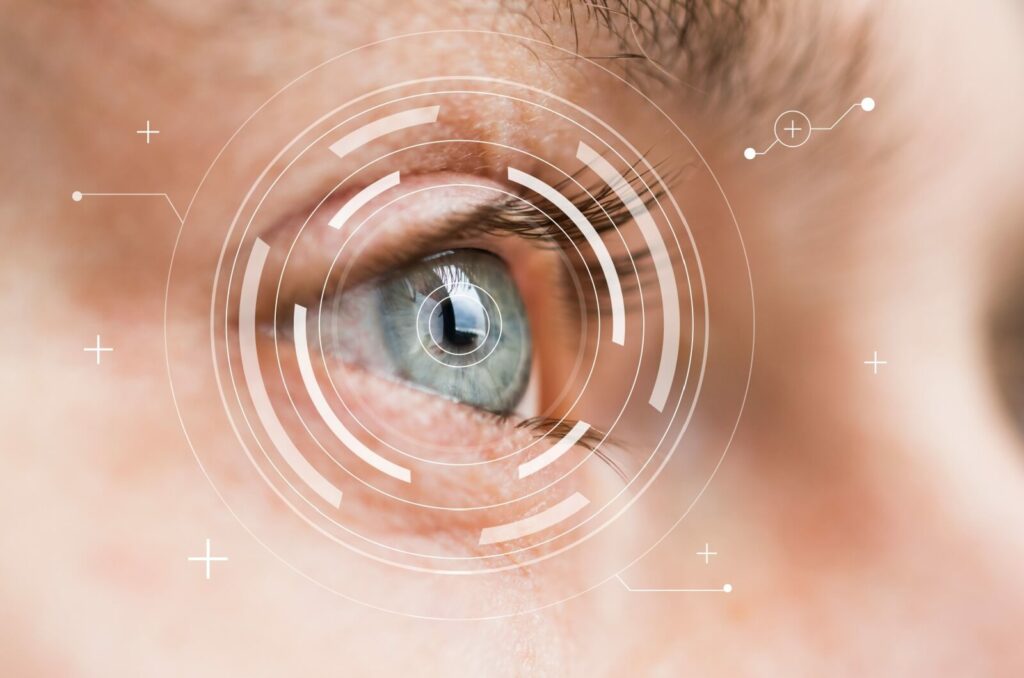Your eyes are part of an incredibly complex system within the body that adapts and changes as you grow. Often, clear and sharp vision is taken for granted. Those who grew up needing glasses for myopia (nearsightedness), hyperopia (farsightedness), or other vision conditions are likely familiar with wondering whether your vision can get better over time as you grow–only to learn alongside their 20/20 vision peers that it’s rare for vision to improve on its own over time.
However, sometimes, we get the impression that our vision is improving. This can be a warning sign of a more concerning health issue that should be reviewed with an optometrist.
What Typically Happens to Your Eyes as You Age?
Our eyes undergo several changes as we age. Starting in our 40s–50s, it’s common to experience presbyopia, which makes it harder to focus on close objects, which is why reading glasses are so common among people at this age.
This occurs because the lens inside the eye becomes less flexible over time. As such, there are several common eye conditions linked to aging, including:
- Cataracts, which cloud the eye’s lens, leading to blurry vision.
- Glaucoma, which damages the optic nerve, often resulting in vision loss.
- Macular degeneration, which affects the retina’s central part and can severely impair your ability to see details.
These changes can significantly impact daily activities, making tasks like reading, driving, and recognizing faces more challenging. Regular eye check-ups become essential to monitor these changes and take appropriate actions to mitigate their effects.
Can Eyesight Improve on Its Own?
Interestingly, vision isn’t static. It can change due to stress, nutrition, and general health. While some lifestyle changes may lead to temporary fluctuations in vision, a healthy diet and lifestyle primarily help prevent eye damage and support overall eye health rather than directly improving vision.
Consuming a nutrient-rich diet, engaging in regular exercise, reducing screen time, staying properly hydrated, and getting adequate sleep can contribute to optimal eye function and may help prevent ocular diseases. However, these factors are more about prevention and maintenance of eye health than about directly enhancing vision.
What Does It Mean If Eyesight Does Start Getting Better?
If your vision starts to improve unexpectedly, understanding why is crucial. Improved vision could indicate positive changes in overall health, such as better diabetes control or reduced inflammation. Changes in blood sugar levels, hormonal fluctuations, or medications can affect eyesight.

However, it could also be a sign of underlying conditions that require medical attention, such as diabetic retinopathy or cataracts causing “second sight,” a rare condition where someone with farsightedness develops nearsightedness. This makes it appear that your ability to see things up close is improving, but it is a temporary state with cataracts that will worsen if left untreated.
Consulting an eye care professional can help identify the cause. Moreover, regular eye exams can help monitor vision changes and catch potential issues early on. Eye care professionals can provide personalized advice and treatment options to maintain or improve eye health.
How to Preserve & Take Care of Your Vision
While it is much more likely for your vision to worsen over time instead of improving, there are things within your control that you can do to preserve your long-term vision.
- Regular eye check-ups: Scheduling regular eye exams can help detect problems early and keep your vision in check. Eye doctors can prescribe corrective lenses or treatments to address any issues.
- Healthy diet: A balanced diet rich in vitamins A, C, and E and minerals like zinc can support eye health. Foods such as carrots, spinach, and fish are beneficial for maintaining good vision.
- Lifestyle choices: Staying hydrated and getting enough sleep are simple yet effective ways to keep your eyes healthy.
- Protective measures: Wearing sunglasses to protect against UV rays, taking breaks from screens, and ensuring proper lighting can help reduce eye strain.
- Vision therapy: A personalized program of eye exercises delivered by many optometrists designed to improve visual skills. It aims to enhance the connection between the eyes and the brain, addressing issues like lazy eye, double vision, and problems with focusing.
Take Care of Your Vision Today
At Santa Cruz Optometric Center, we understand the importance of caring for our long-term vision so you can feel better and see better. Contact us today to book your next comprehensive eye exam and see where your vision stands.



